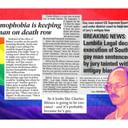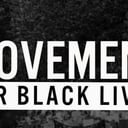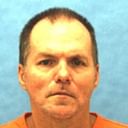New York Times Magazine
By BILL BABBITT
AS TOLD TO GABRIELLE BANKS
In December 1980, I made the hardest decision of my life. I told the police I suspected my younger brother of murder. Manny had come to live with my wife, Linda, and me in Sacramento that September after being released from a mental institution. He had been suffering from post- traumatic symptoms ever since he returned from Vietnam in 1969. During the 77-day siege at Khe Sanh, Manny picked up pieces of his fellow G.I.‘s. Then he got wounded and medevacked out in a helicopter on a pile of dead bodies.
It seemed right for Manny to move in. He had tagged along with me ever since we were kids. We would wrestle and go clamming in the mud flats. When he got older, we shot pool together. Now when we played, I had to watch his temper. We gave him money and tried to help him get work. But when I let him go out on his own, he acted strange. I didn’t want to use the word “crazy.” But he was bathing less, and his dress was bizarre. I was worried. I had let Manny get away from me and spend too much time by himself. His demons started coming to the surface.
Linda called me at work one day and said that she had found coins stashed around the house, and that Manny had been buying the kids gifts with extra money. That night I saw that this little choo-choo piggy bank of mine was packed with rolls of nickels. And I found a cigarette lighter engraved with the initials L.S. I couldn’t make sense of it. Then I had an awful thought. I went to find the newspaper. They had been reporting about an old woman who was killed that week in our neighborhood. It hit me: Leah Schendel had been playing the nickel slots in Reno just days before the murder.
My wife was sleeping. I woke her and said, “Let’s get down and pray.” I was kneeling at the foot of the bed. I handed her the article and said, “I think Manny did this.” We agonized over it. Options came into my head. One of them was to give him a bus ticket and just get him out of there. But if I did that, I would have his victim’s blood on my hands. Was there another Leah out there who might become a victim of my brother and his demons? I didn’t think I could live with that burden. If I told them about my brother, it would give me another burden, but I didn’t realize then that it would be so great. We were also really scared because we did not know if he was coming home that night. He sometimes didn’t. We had a wooden garage door that I nailed shut with spikes so he wouldn’t be able to get in.
It was raining like hell the next day. Linda got the kids out of the house. Then I went and interviewed with the police for hours. They were nice guys, very compassionate. I cried a lot. When it came time to apprehend Manny, an officer reached into his desk drawer and pulled out a handgun. He flipped open the chamber, checked for bullets and slid it into his holster. 5 or 6 other cops strapped theirs on.
Manny was at my sister Donna’s. I convinced the police that I could get him safely out of the house. I was afraid Manny would get shot. I didn’t want him to die that day. When we got there, Manny was goofing around with Donna’s kids, making tents out of chairs and sheets. I told him, “Let’s go out and play some pool.” He fell for it. Out on the street, the cops arrested him. He looked up at me. I said, “Manny, everything’s going to be all right.” He did not resist. He never denied killing anybody. He just didn’t remember.
I decided not to ride in the patrol car with Manny. I could not get a handle on my emotions. I felt guilty, and ashamed of him. On his last day of freedom, I betrayed him. It was terrible. But I felt I had to do what I did. During his interrogation, an officer told Manny, “You’re not going to go to the gas chamber or anything like that.” The cops promised me they would give him the help he needed.
Right away, Manny forgave me. My family, my brothers and sisters, they all forgave me. But I never really reconciled with my mother or came clean with her as far as the prospect of my brother dying. I couldn’t dash her hopes. I would always say, “Ma, we’re going to make it.” I really believed it. We never thought Manny would be executed, right up to the last half-hour. I watched them kill my brother at San Quentin on May 4, 1999.
In hindsight, I probably should have taken Manny to the Veterans Administration or — if I’d had the money — to a psychiatrist first. Maybe I would have had a lawyer with me when the cops promised that he would not get the death penalty. I pray Manny’s children will forgive me. I want them to say, “Uncle Bill, regardless, you did the right thing.”



